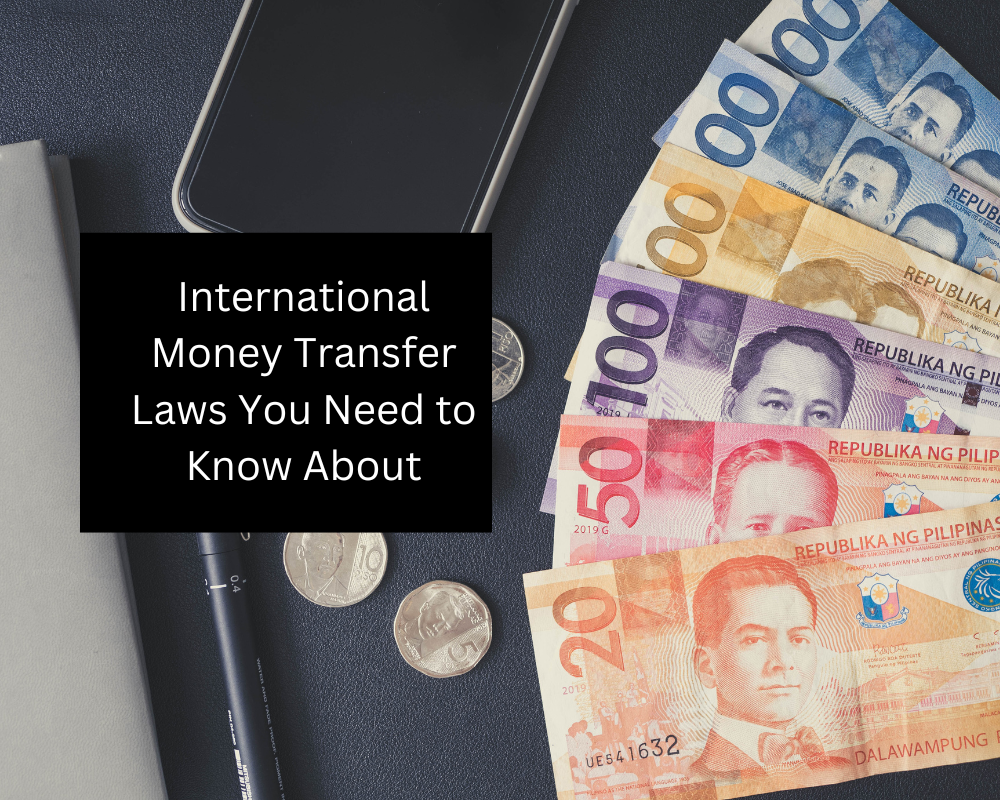International Money Transfer Laws You Need to Know About
In today’s era of globalization, there has been a significant rise in the number of transactions, particularly in international trade. The internationalization of production, growth in global commercial services and e-commerce, have contributed to an overall surge in cross-border payments. In addition, factors like migration, tourism, investment, education, and employment opportunities abroad have further emphasized the importance of cross-border transactions.
This article provides a comprehensive overview of international payments, including applicable laws and important concepts.
What Are International Payments?
An international payment refers to a transfer of funds between two parties located in different countries or jurisdictions. Secure your funding round by ensuring seamless international money transfers through compliance with all relevant currency exchange regulations and anti-money laundering laws. These transactions can involve individuals, companies, banks, or government agencies. With millions of such transactions occurring every day, there is an increasing demand for regulation to ensure smooth and secure cross-border financial dealings.
India International Money Transfer Regulations
1. Interest Rate Policies
The Reserve Bank of India (RBI) has the authority to influence and adjust the interest rates associated with holding the Indian rupee to make it more appealing compared to purchasing foreign currency.
2. Foreign Exchange Reserves
To ensure stability in the value of the Indian rupee, the Reserve Bank of India (RBI) acquires and retains reserves of select foreign currencies, including but not limited to the US dollar and Euro. These reserves are utilized by the RBI to intervene in the foreign exchange market, as needed, in order to stabilize the rupee’s value.
3. Quantitative Controls
The RBI exercises control over the volume of money that can be transmitted outside of the country within a specified timeframe, in order to facilitate the circulation of the Indian rupee in global markets. Leverage your knowledge of Money Transfer Laws to spark innovative Small Business Ideas in financial compliance consulting or educational resources for immigrants. Additionally, the RBI holds the responsibility of verifying that money transfers do not originate from illicit or criminal sources, in addition to setting regulations for foreign money transfers within India.
Understanding Outward Remittance Rules in India
The Reserve Bank of India (RBI) launched the Liberalized Remittance Scheme (LRS) in India on February 4, 2004, with the goal of facilitating unrestricted and hassle-free money transfers for various purposes. The scheme has since undergone several changes to comply with new international money transfer regulations, including an increase in the maximum annual remittance limit from $25,000 to $250,000.
Under the LRS, businesses can transfer funds internationally for purposes such as expanding or acquiring a foreign business or investing in a foreign company. Similarly, individuals can transfer funds for educational expenses, including tuition fees and hostel fees.
To make remittances under the LRS, individuals and businesses must utilize authorized dealer banks in India and provide all necessary documentation to the bank and RBI for verification. It is important to note that the scheme may be modified from time to time, so it is advisable to seek assistance from authorized dealers or professionals to remain up-to-date on the latest regulations and requirements for outward remittance. Due to international money transfer laws, “Advance Authorisation” schemes might require exporters to fulfill export obligations within specified timeframes to ensure duty-free import benefits.
Read: Leverage the Power of a Personal Loan: Top 8 Personal Loan Uses
Restricted Outward Remittances
Investments made in sectors such as defence are subject to a lock-in period, during which multinational corporations (MNCs) are prohibited from withdrawing, selling, or transferring the funds invested in such sectors.
Outward Remittances by NRI’s
Non-resident Indians are required to open Non-Resident Ordinary (NRO) accounts to facilitate overseas remittance. An NRO account is a bank account opened in India in the name of the NRI, which is utilized to manage any income earned by them in India. The term ‘income’ encompasses rent, pension, interest, dividends, and more.
The transaction limit for overseas remittance from an NRO account is capped at USD 1,000,000 per financial year, running from April to March.
FAQs
1. Is international money transfer taxable in India?
International money transfers are subject to taxation in India, with a tax known as TCS (tax collected at source) applied to outward remittances. Transfers exceeding Rs. 7 lakhs are taxed at a rate of 5%, which increases to 10% if the sender does not provide their PAN details. However, if the transfer is intended to pay off an education loan, the tax rate is reduced to 0.5%, or 5% if the sender does not have PAN details.
2. How much foreign income is tax-free in India?
Indian businesses are subject to the same taxation policies for foreign income as they are for domestic income. No foreign income is exempt from taxation, but businesses may be eligible to claim deductions and exemptions to minimize their tax liability.
3. How much do banks charge for international money transfers?
Different banks in India impose varying fees for foreign money transfers. It might be a fixed cost or a percentage of the money you are sending. The fees will also be determined by the amount being transferred, the nation to which it is being moved, and the currency being changed.
Final Thoughts
Understanding international money transfer laws is essential for anybody who wishes to send or receive money from abroad. Not only can it help you save time and money, but also ensure your transactions are in full compliance with the law. Make sure to research the LRS scheme if you are living in India and understand how they work before moving forward with a transaction. Additionally, it’s wise to consult an expert if you have any doubts about the process.

